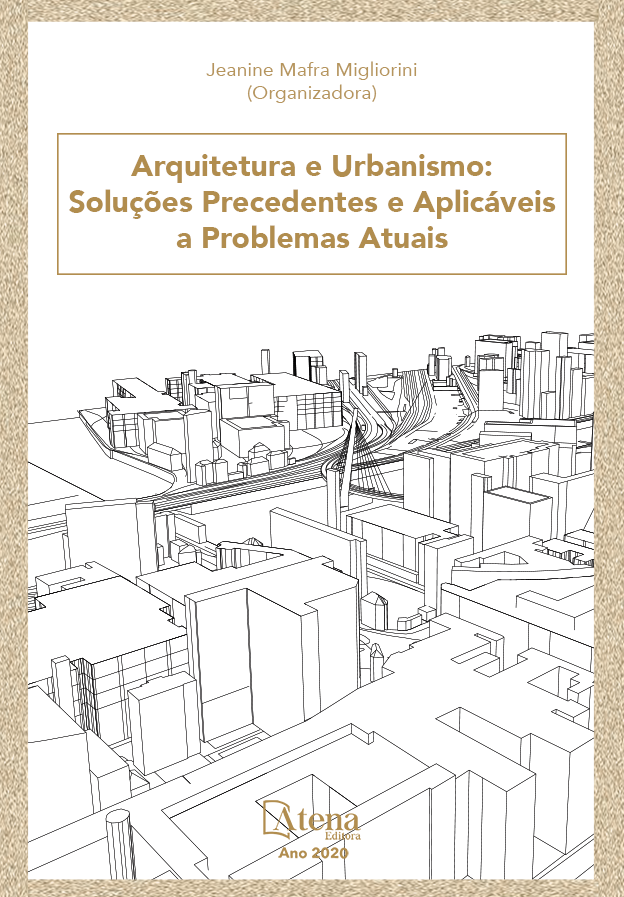
JARDIM VERTICAL DE FELTRO AUTOMOTIVO: UMA SOLUÇÃO SUSTENTÁVEL E ACESSÍVEL PARA ESSA ESTRATÉGIA BIOCLIMÁTICA
O processo de urbanização provoca inúmeras alterações nos climas das grandes cidades, resultando em fenômenos como as ilhas de calor, que proporcionam baixa qualidade do ar e elevam a temperatura nesses centros urbanos. Neste contexto, o uso de jardins verticais destaca-se como estratégia bioclimática pelos benefícios relacionados ao conforto ambiental. No entanto, é o fator estético que o evidencia e contribui para a disseminação do seu uso. O emprego desta estratégia bioclimática ganhou destaque em âmbito mundial a partir do sistema desenvolvido por Patrick Blanc, sistema hidropônico que tem como matéria-prima principal um material não-tecido. Porém, os sistemas de jardins verticais são ainda economicamente pouco acessíveis, neste sentido torna-se relevante a busca por materiais sustentáveis e de fácil acesso. Adotando como referência os sistemas de jardins verticais existentes no mercado, desenvolveu-se módulos de jardim vertical produzidos a partir de reuso de perfis de zinco, tendo como principal matéria-prima o feltro automotivo, material não-tecido, facilmente encontrado para compra. O principal objetivo deste trabalho é apresentar e discutir o potencial do feltro automotivo como material sustentável e acessível para a produção de jardins verticais. Os módulos foram produzidos em 2018 e o plantio das mudas de aspargo-pendente (Asparagus densiflorus ´Sprengeri´) deu-se entre setembro do mesmo ano e junho de 2019, em local desprotegido, na cidade de Santa Maria - RS. O feltro automotivo mostrou-se um excelente meio de produção da espécie observada, sendo este material uma alternativa sustentável e acessível para a produção de jardins verticais. No entanto, faz-se necessário novos estudos sobre o desenvolvimento não uniforme da vegetação, bem como a respeito da adaptabilidade de outras espécies ao sistema proposto.
JARDIM VERTICAL DE FELTRO AUTOMOTIVO: UMA SOLUÇÃO SUSTENTÁVEL E ACESSÍVEL PARA ESSA ESTRATÉGIA BIOCLIMÁTICA
-
DOI: 10.22533/at.ed.0342003127
-
Palavras-chave: Jardim vertical. Feltro automotivo. Sustentabilidade. Estratégia bioclimática.
-
Keywords: Vertical garden. Automotive felt. Sustainability. Bioclimatic strategy.
-
Abstract:
The urbanization process causes numerous changes in the climates of large cities, resulting in phenomena such as heat islands, which provide low air quality and raise the temperature in these urban centers. In this context, the use of vertical gardens stands out as a bioclimatic strategy for the benefits related to environmental comfort. However, it is the aesthetic factor that highlights it and contributes to the dissemination of its use. The use of this bioclimatic strategy has gained prominence worldwide, based on the system developed by Patrick Blanc, a hydroponic system whose main raw material is a non-woven material. However, vertical garden systems are still economically inaccessible, in this sense the search for sustainable and easily accessible materials becomes relevant. Adopting the vertical garden systems available on the market as a reference, vertical garden modules developed from the reuse of zinc profiles were developed, using automotive felt, non-woven material as the main raw material, easily found for purchase. The main objective of this work is to present and discuss the potential of automotive felt as a sustainable and accessible material for the production of vertical gardens. The modules were produced in 2018 and the planting of seedlings of asparagus-pendant (Asparagus densiflorus ´Sprengeri´) took place between September of the same year and June 2019, in an unprotected location, in the city of Santa Maria - RS. The automotive felt proved to be an excellent means of production of the species observed, being this material a sustainable and accessible alternative for the production of vertical gardens. However, further studies are needed on the non-uniform development of vegetation, as well as on the adaptability of other species to the proposed system.
-
Número de páginas: 17
- Minéia Johann Scherer
- Marcelo Antonio Rodrigues
- Luciana Rocha Ribeiro


